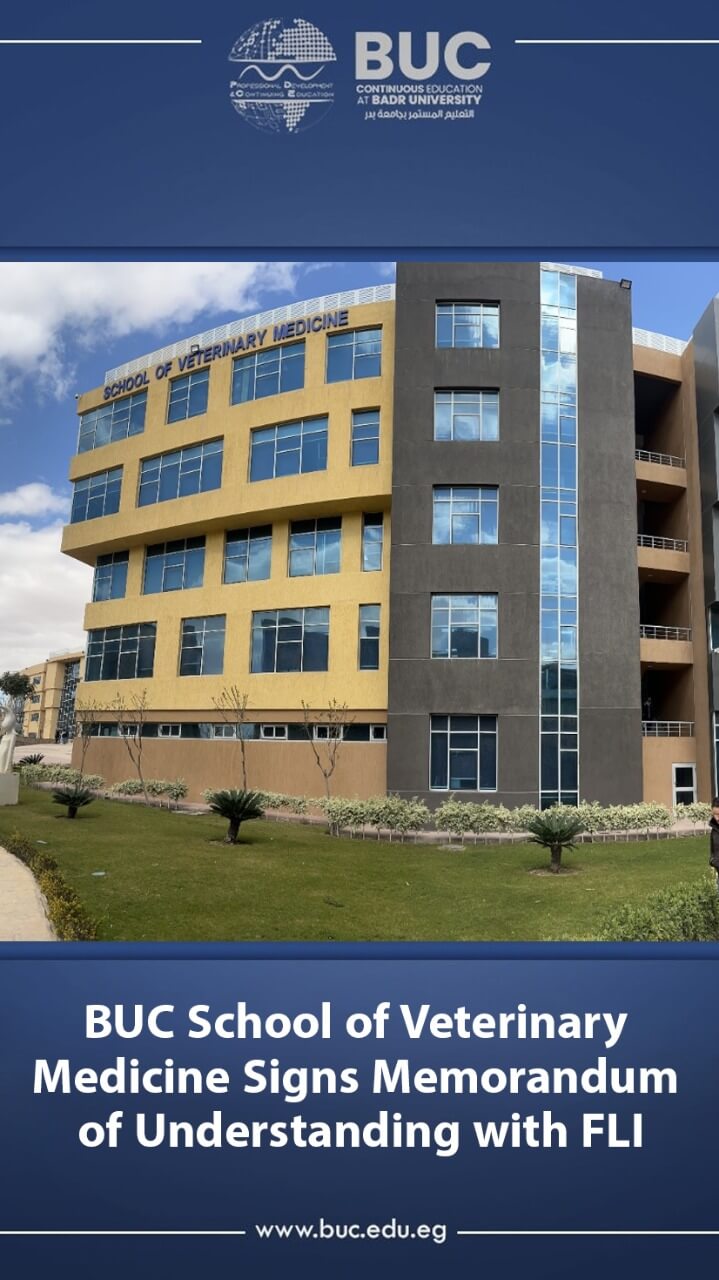BUC School of Veterinary Medicine has signed a memorandum of understanding with the Friedrich Loeffler Institute. Under the auspices of Professor Dr. Hassan Al-Kalla, Chairman of the Board of Trustees of Badr University in Cairo, Prof. Dr. Fawzi Turki, President of the University, Prof. Dr. Ibrahim Al-Kalla, vice president of Education and Student Affairs, and Prof. Dr. Amr El Atreby, Vice President of the University for Graduate Studies, Research, and International Cooperation, Prof. Dr. Adel Abdulkhalak, Dean of the School of Veterinary Medicine at Badr University in Cairo, has announced that a cooperation agreement has been concluded between BUC Faculty of Veterinary Medicine and the Federal Research Institute for Animal Health of Germany (FLI.) FLI is the country’s leading animal disease center.
The Friedrich Loeffler Institute is subordinate to the German Ministry of Food, Agriculture, and Consumer Protection, its main subject is the thorough study of livestock health and other closely related subjects, including molecular biology, virus diagnostics, immunology, and epidemiology.
BUC School of Veterinary Medicine and FLI have agreed on exchanging ideas, visions, and insights; to benefit from the leadership of the German Institute in Europe by exchanging experience in scientific research and academic education.
The articles of the convention include the following:
- Exchange of scientific research.
- Student trainee exchange between the two institutes (Five students per year for one or two weeks.)
- Joint coordination of conferences and workshops; helps broaden knowledge and experience, aiming at developing academic research.
- Providing mutual technical support in diagnosing animal diseases, especially “common diseases.”
- Implementation of joint research projects and the exchange of scientific experiences of professors and researchers between the Faculty of Veterinary Medicine at Badr University in Cairo and the Federal Research Institute for Animal Health in Germany (FLI,) as well as maximizing the use of research laboratories on both sides


